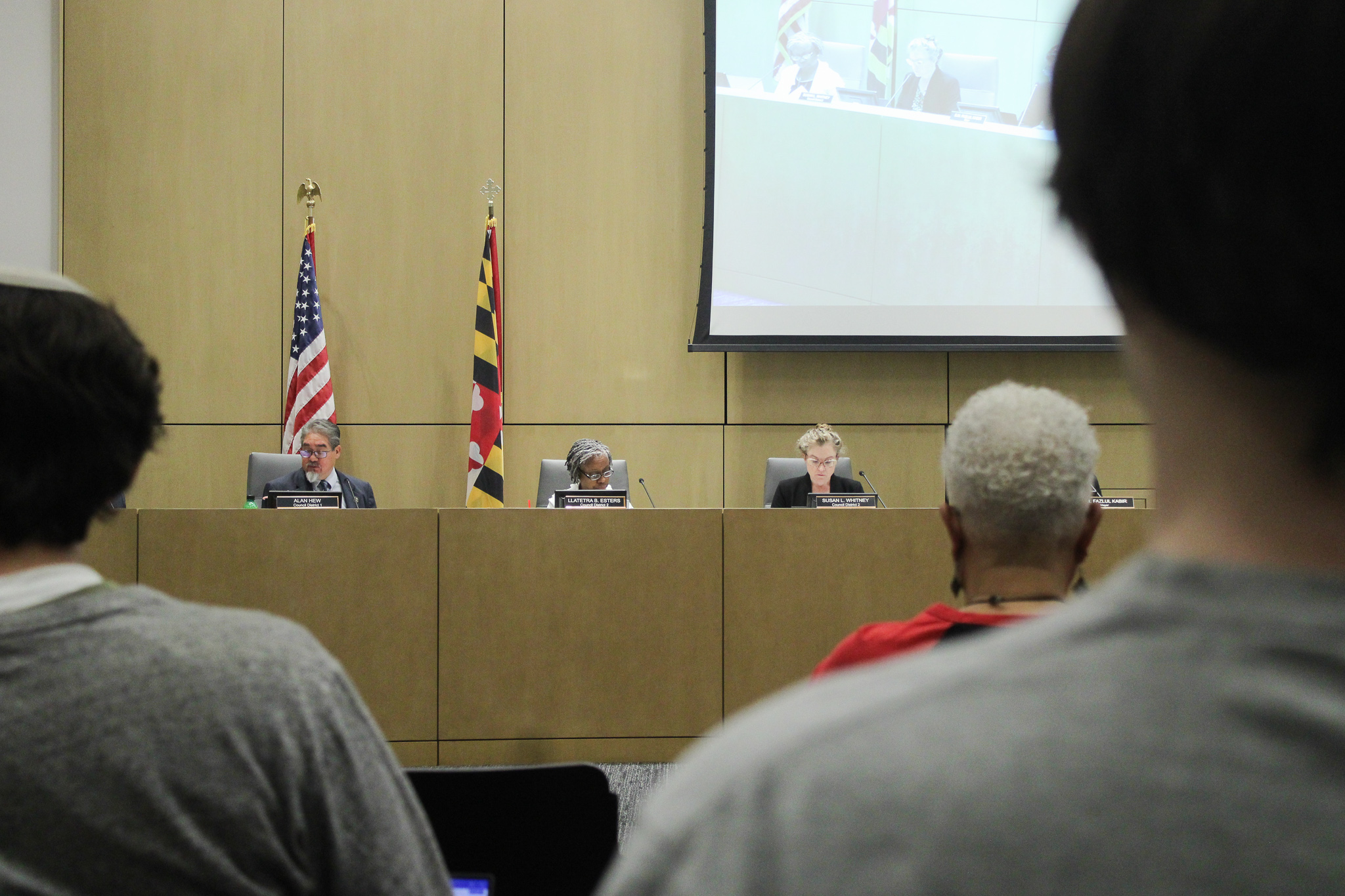The College Park City Council voted to amend the city’s 2025 fiscal year budget last week to reduce funding for Meals on Wheels and provide an additional $750,000 in renovations for Attick Towers, a low-income public housing building.
The amendment, which passed 6-1, cuts funding for Meals on Wheels — a food service nonprofit for senior citizens — from $800,000 to $400,000. Under the amended budget, the city will distribute $455,000 to five local food service delivery organizations, including Meals on Wheels, according to city documents.
Some council members expressed concerns about the decreased funding for Meals on Wheels at a Sept. 10 meeting when the amendment was introduced.
District 4 council member Denise Mitchell said at the meeting that Meals on Wheels is a crucial organization to the county that provides support for residents facing food insecurities.
“I just feel as though maybe I have a soft spot because of … how many people I have to work with to find food,” said Mitchell, the mayor pro team.
Past city-provided funding for Meals on Wheels has ranged from about $15,000 to $150,000 a year, Mitchell told The Diamondback.
[Shake Shack, Greene Turtle among 2024 College Park business additions]
The organization plans to build a new College Park facility on Route 1, District 2 council member Susan Whitney told The Diamondback. The nonprofit requested funding from the city to aid with the construction, Whitney said.
Lisa Ealley, the chairman of Meals on Wheels, said that regardless of the specific amount, she appreciates the city assistance the organization has received and how generous the council has been in recent years.
“I’m hoping that we can continue to stay in business,” Ealley said to The Diamondback. “We need to get funding from wherever we can get it from.”
The amendment will provide funding for Meals on Wheels through the city’s general funds, rather than the federally funded American Rescue Plan Act allocation fund.
The ARPA fund stems from federal aid given to provide relief during the COVID-19 pandemic, according to Whitney.
This restricts how much money can be granted and who it can be granted to, Whitney told The Diamondback. It also requires the city to commit fund money by the end of December, Whitney added.
Completing the lease agreement between Meals on Wheels and their new location is taking more time than expected, so the council decided to distribute the funds through the general fund, Whitney said.
This adjustment ensures the nonprofit receives the proper amount of funding, while also having enough time to finalize a contract for their relocation, Whitney said.
“We very much value and care about Meals on Wheels and we didn’t want to completely take all money for them off the table,” Whitney said.
[College Park City Council considers funding elementary school tutoring program]
The council granted Attick Towers — an affordable apartment building for senior citizens and people with disabilities — an additional $750,000 under the amended budget. This is in addition to the $1.25 million originally allocated for the apartment building in the ARPA fund, according to Whitney.
The building was built in 1968 and opened in 1972, but has seen almost no renovations since. College Park community members hoped to raise nearly $20 million for an overhaul renovation of the building, The Diamondback reported last October.
Necessary renovations include heating and air conditioning unit upgrades and improved elevator and piping systems, District 2 council member Llatetra Brown Esters told The Diamondback.
Esters said she and Whitney have held community meetings with the building’s residents to discuss issues regarding their living conditions and experiences.
The pair hold these meetings “as much as [they] can” to understand the residents and the necessary renovations, Esters said.
While the building gets a majority of its funding from the U.S. Housing and Urban Development agency, Esters told The Diamondback the council hopes to continue providing assistance to the building.
“Some of our most vulnerable residents live there,” Esters said. “We want them to live in a safe, clean environment and … we want to try our best to do that.”



